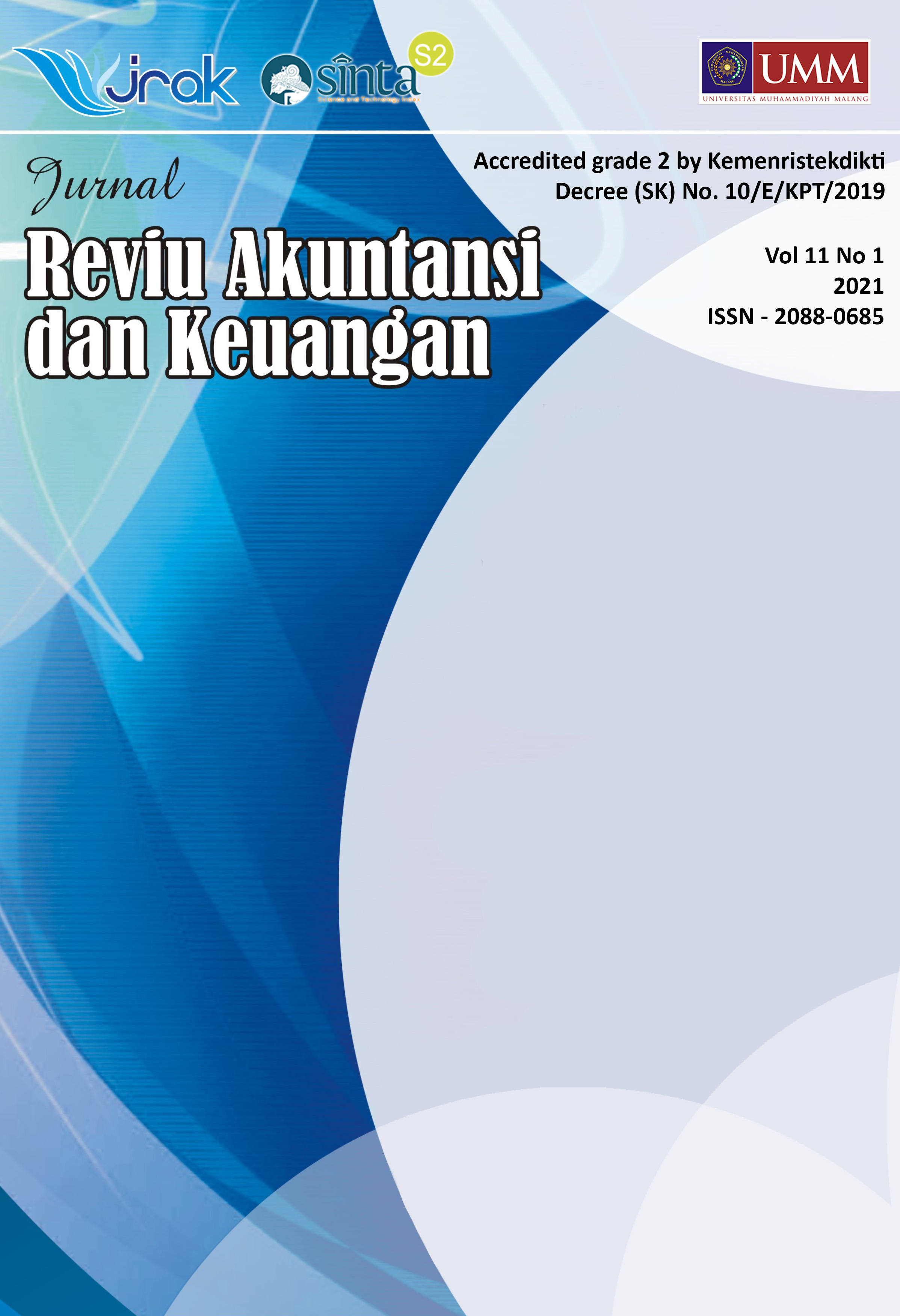Professional Commitment And Whistleblowing Intention: The Role Of National Culture
DOI:
https://doi.org/10.22219/jrak.v11i1.14558Keywords:
fraud, power distance, collectivism, uncertainty avoidance, whistleblowingAbstract
This study aims to identify the effect of professional commitment on whistleblowing intentions. This study also analyzes the role of Hofstede's five dimensions of national culture as moderating variable, including power distance, collectivism, masculinity, uncertainty avoidance, and long-term orientation. This study used a survey method. The primary data collection was through a questionnaire distributed to 92 auditors in accounting firms in Bali Province. The result shows that professional commitment positively affects whistleblowing intention. The moderating variable's roles are power distance and collectivism's culture weaken professional commitment and whistleblowing intention relationship. Two other cultures, namely masculinity and a long-term orientation, are proven to strengthen the relationship between professional commitment and whistleblowing intention. Contrary, uncertainty avoidance culture has no significant effect. Theoretically, this study confirms the role of the national culture in the auditing context. This result practically adds insight to regulators and accounting firm leaders in formulating regulations regarding the appropriate whistleblowing system for organizations. There are two limitations. First, this study uses a survey method. This method allows for social desirability bias for sensitive variables, such as whistleblowing. This study also uses the national culture popularized by Hofstede about forty years ago. Thus, further research might use other popular models.
Downloads
Downloads
Published
Issue
Section
License
Copyright (c) 2021 Jurnal Reviu Akuntansi dan Keuangan

This work is licensed under a Creative Commons Attribution 4.0 International License.

Jurnal Reviu Akuntansi dan Keuangan is licensed under a Creative Commons Attribution-NonCommercial-ShareAlike 4.0 International License.
Authors who publish with this journal agree to the following terms:
- Authors retain copyright and grant the journal right of first publication with the work simultaneously licensed under a Creative Commons Attribution-NonCommercial-ShareAlike 4.0 International License that allows others to share the work with an acknowledgement of the work's authorship and initial publication in this journal.
- Authors are able to enter into separate, additional contractual arrangements for the non-exclusive distribution of the journal's published version of the work (e.g., post it to an institutional repository or publish it in a book), with an acknowledgement of its initial publication in this journal.
- Authors are permitted and encouraged to post their work online (e.g., in institutional repositories or on their website) prior to and during the submission process, as it can lead to productive exchanges, as well as earlier and greater citation of published work (See The Effect of Open Access).










